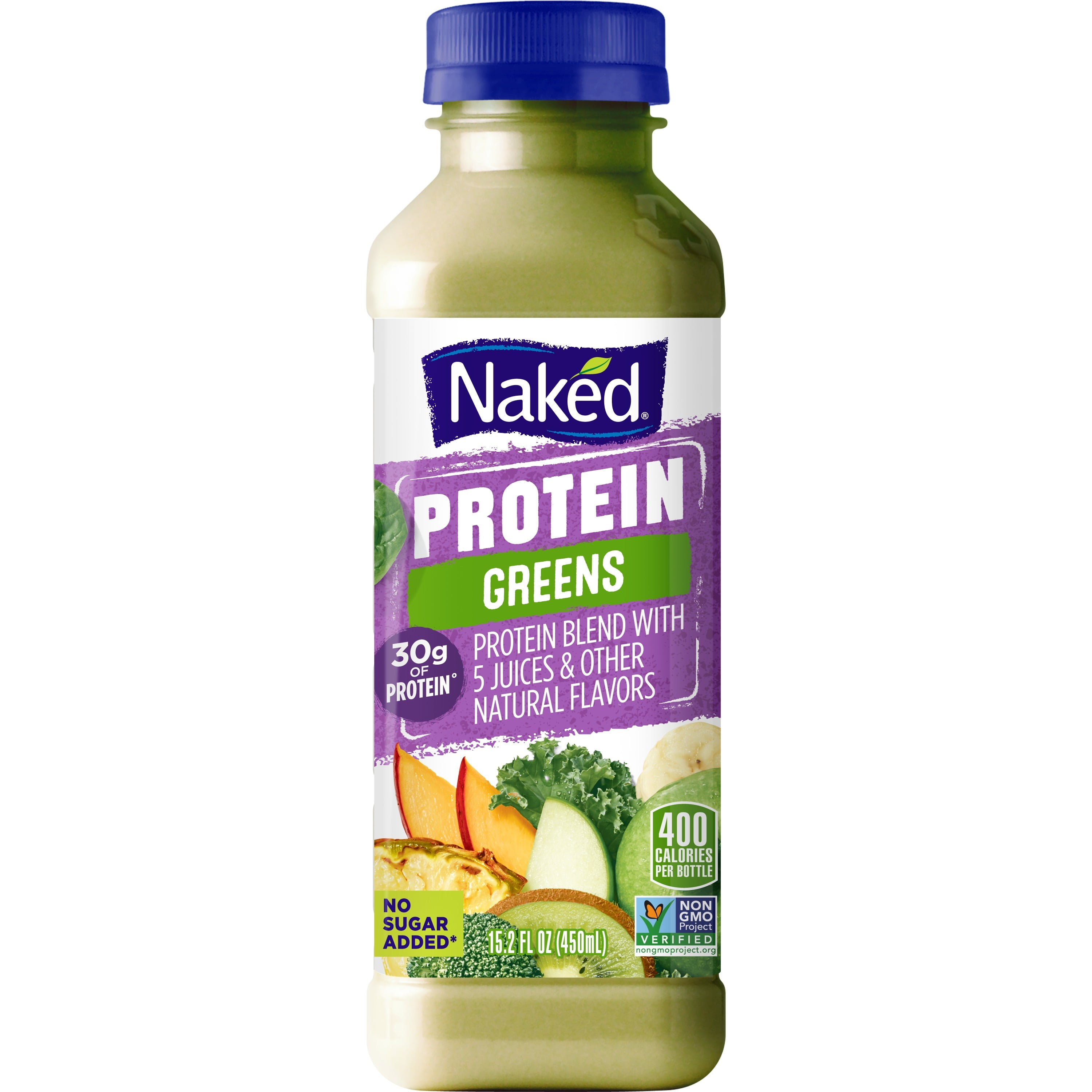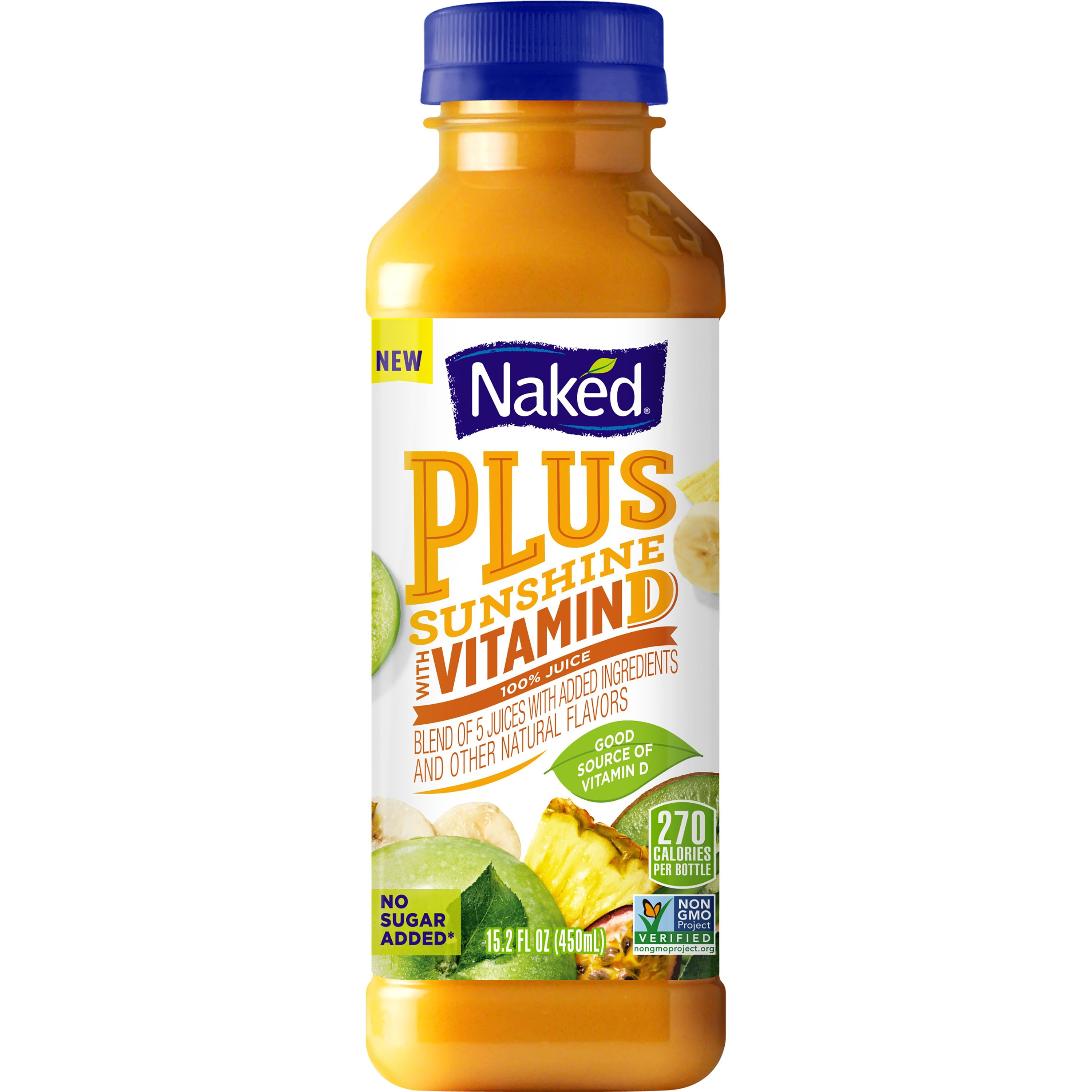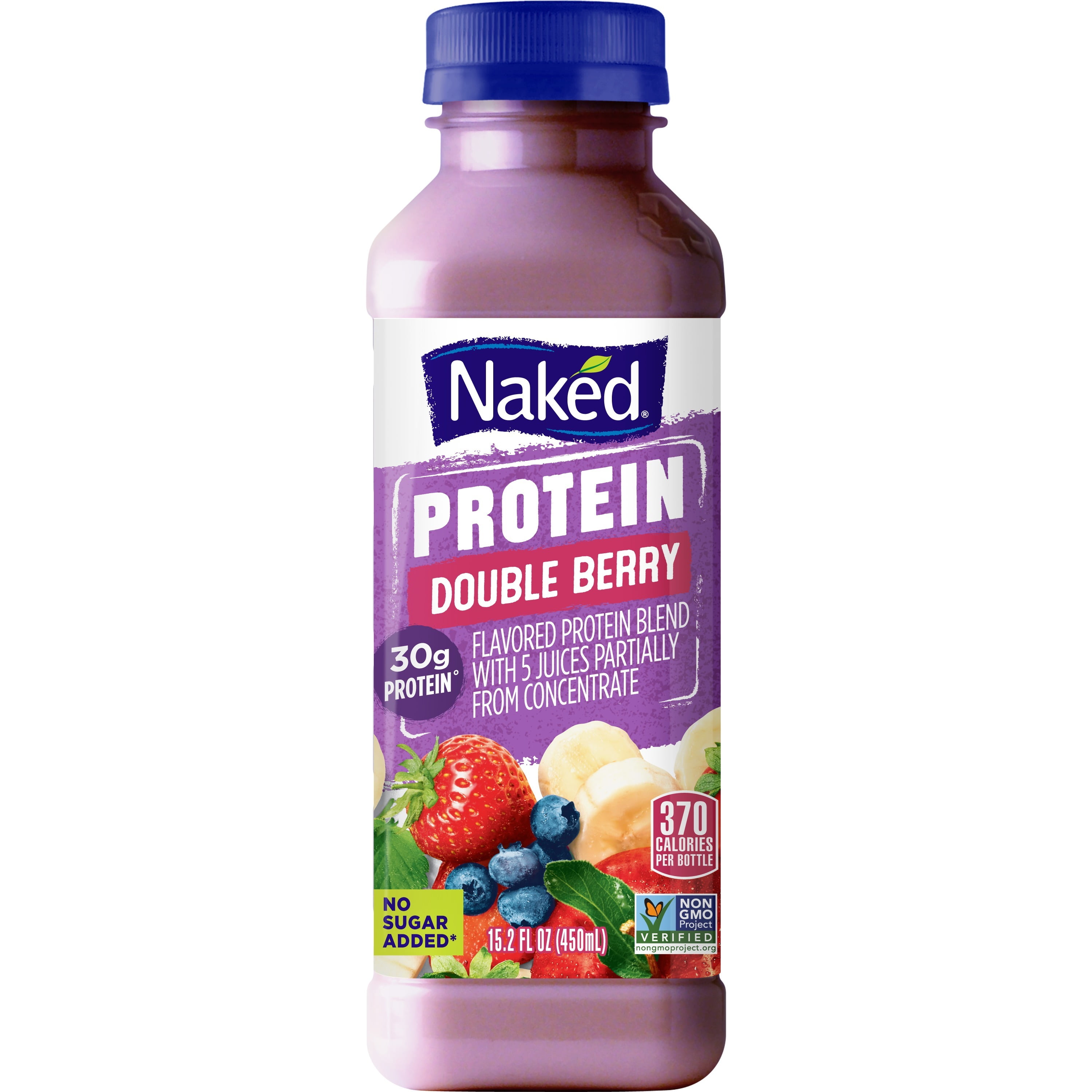


Basically, that weighs about as much as a wet feather. So 51/1000ths of a ¼ teaspoon is how much kale concentrate you’re getting in this juice. A gram of sugar is about the same as a ¼ teaspoon, so if that helps you imagine things better, use it. OK, so there is 1000 mg (milligrams) in a gram. Let’s leave behind the juiced fruits right now and focus on those boosts.

Right, so this is all in metric, and that might not be so familiar for some of our straight-laced readers out there. That Sounds Like a Heck of a Lot of Stuff Packed Into a Single Drink! You get 76 mg each of barley grass and wheatgrass, 102mg each of broccoli and spinach, 409 mg of alfalfa, and 1335 mg of spirulina. Garlic, ginger, kale, and parsley each give 51mg. In that Green Machine, you’ve got the juice of 2¾ apples, ½ a banana, 1/3 of a mango, 1/3 of a kiwi, and just 1/12 of a pineapple. They also come in 10, 46, and 64-ounce bottles as well. We’ll choose the 15.2-ounce bottle, which is touted as a personal size juice for an adult. Let’s look at the Green Machine as an example. Right away, that makes you feel like a fruit superhero. Rather than telling you how much apple or mango juice is in the bottle, they tell you how many pieces of fruit were juiced into it.

According to the Food and Drug Administration's website: “From a food science perspective, it is difficult to define a food product that is 'natural' because the food has probably been processed and is no longer the product of the earth. The problem is that the federal government hasn't really defined what a “natural” food ingredient is. The complaint also alleged that the products were labeled as containing certain vitamins and nutrients when they actually contained chemically distinct vitamin substitutes. The complaint alleged that the company deceptively advertised some of its products - including its Acai Machine, Protein Zone and Mango Veggie juices - by using the all natural and non-GMO claims on their labels even though the products contained unnaturally processed and synthetic ingredients as well as ingredients derived from genetically modified crops. Naked Juice was first targeted in five separate class actions in 2011 that were consolidated in the Central District of California the following year. They are not changing their name to Partially Clothed Juice, however. Naked Juice called the deal “fair, reasonable and adequate” while denying “all of plaintiffs' claims.” “However, until there is more detailed regulatory guidance around the word 'natural,' we've chosen not to use 'all natural' to describe our juices and smoothies,” a Naked Juice spokesperson told. Naked Juice has also agreed to hire an independent tester to confirm the accuracy of its labels' “non-GMO” claim as well as create a database to electronically track and verify the ingredients for the Naked Juice line. They claimed that the company was violating California false advertising and unfair competition laws. The plaintiffs alleged that such a designation was false because many of the juices contained Fibersol-2 (a soluble corn fiber used to increase the fiber content of foods) fructooligosaccarides (a fructose-based alternative sweetener and indigestible fiber) and inulin (a soluble fiber) and also contained genetically modified soy. It will no longer describe its juices as “all natural.” Under the deal, Glendora-based Naked Juice, owned by PepsiCo., continues to deny that its product labels were misleading or false but has agreed to shell out the money for a settlement fund and to redesign their labels to either eliminate or modify the questionable representations. has agreed to pay $9 million to settle a class-action suit alleging that it falsely advertised some of its juice and smoothie products as “all natural” and non-genetically modified, according to the website. A lawsuit has laid bare the real ingredients in Naked Juices.


 0 kommentar(er)
0 kommentar(er)
